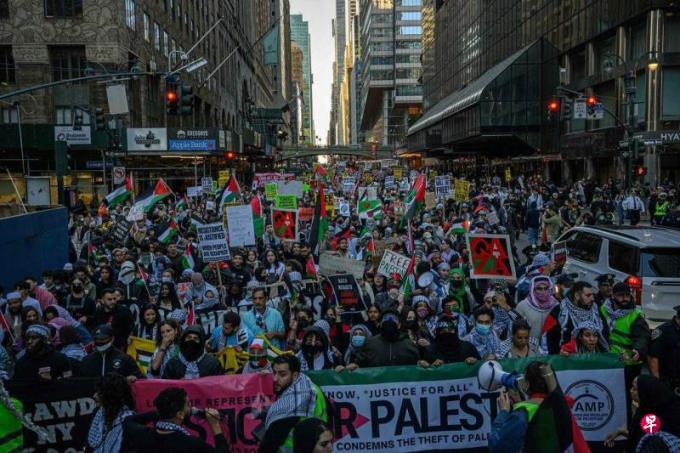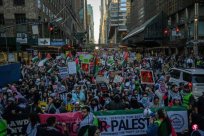
Britain, France, and the United States may not happen that once the hatred seeds of religion and nation are broadcast, they will breed extremist organizations and terrorism.
The latest round of fierce conflict between Palestine and Israel ignited the Middle East gunpowder barrel.Whether this gunpowder barrel will detonate a larger scope of war still needs to be observed.
The history of theMiddle East canal can be traced back to the first World War and European powers to divide the Ottoman Empire.
The Ottoman Empire was founded at the end of the 13th century. After the Eastern Roman Empire was destroyed in the middle of the 15th century, it became the strongest European neighbor. The territory was centered on today's Turkey, covering the southeast of Europe, the Balkans, the Middle East and North Africa.
In more than 300 years after, Europe has experienced Renaissance, religious reform, scientific revolution and industrial revolution, and its economy and national strength are strong, while the Ottoman Empire is sunset.
All ethnic groups of the Balkan Peninsula split out of the Ottoman Empire and established the country independently.They and the Ottoman Empires often broke out.In 1914, the Austro -Hungarian Empire declared war on Serbia in the Balkan Peninsula, dragging the surrounding European countries to drag the water and opened the prelude to the battle.Later historians therefore claimed that the Balkan Peninsula was a European gunpowder barrel.
The Austro -Hungarian Empire, the Ottoman Empire, the Bulgaria and the German Empire were ultimately defeated and could not escape the fate of sanctions, compensation and disintegration.The victory country headed by Britain and France has a profound impact on the division of the Ottoman Empire.They divide the Middle East territory of the Ottoman Empire into many emerging Arab countries, and use religious emotions and nationalism to make tensions between these countries and internal manufacturing to ensure their control of these emerging countries and regions, but they did not expect to leadThe Middle East has been chaotic and war in more than 100 years, and even the end of extremism and terrorism.
The gunpowder of the European gunpowder barrel has been transferred to the Middle East.
Before the outbreak of World War I, the Middle East of the Ottoman Empire covered the land of Turkey, Syria, Lebanon, Israel, Palestine, Jordan, Iraq, Kuwait, Saudi Arabia and the Red Sea coast along the Red Sea coast.
British journalist Marshall's prisoner in geography: Ten maps explained the world structure. When the World War I was in the world, British diplomat Mark Sykes took a paper roll oil Crayon, in the place, in theA few lines were drawn on the map to reach an agreement with the French diplomat Georgez Pico (also known as Francois Georges-Picot) to divide the Middle East territory of the Ottoman Empire to the scope of Britain and France.The land division agreement reached by Sicks and Georgez-Pipo is called the Socker-Pasco Agreement.
During the First World War, different tribes in the Middle East and Britain and France cooperated to fight against the Ottoman Empire; after the First World War, these tribes successively obtained land from Britain and France and established the country independently.The first boundary of the Symb -Pasco Agreement determines the borders of these Middle East countries to a large extent.The French sphere of influence includes Syria and Lebanon, and the scope of British forces includes Palestine, Jordan, Saudi Arabia, Iraq and Kuwait.
These national borders of these Middle East countries are artificially delineated, not naturally formed. Nomadic peoples who have interchanged freedom from generation to generation have been cut into different countries., Palestinian issues such as the Middle East.
British Palestine's hosting land is a piece of land divided from the Ottoman Empire, mainly today's Jordan and Israel.Jordan established the country independently in 1946, and Israel was founded in 1948.The Jews were destined not to be too peaceful in the disturbing Arab world.
Arabs and Jews have lived in Palestine for thousands of years, where they are the birthplace of their faith and their sacred land.After World War II, a large number of Jews moved to their homeland. The tension between the Jews and the Arabs reached its peak. The British couldn't control and had to kick the problem to the United Nations.The United Nations proposed the two countries in 1947 to establish a Jewish and Arab countries in the Palestinian region.Although the resolution was approved, the Middle East countries voted against the votes. In addition, the conflict between Jews and Arabs continued to deteriorate, and the resolution was not implemented in the end.After the British withdrew from Palestine in 1948, the Jews announced their independence of the country.Since then, the Middle East war and conflict have continued.
The British French melon is divided into the Ottoman Empire and assigned to the tribal to build a country to implement the policy of dividing and governing the regulation. At the same time, the continuous tension between the ethnic group, religion and sects in these countries can make Britain and France continue to play a role in the Middle East.Including political influence and supply of weapons.
After the rise of World War II, the United States replaced the British world hegemony and continued to play the same game in the Middle East.In the first half of the 20th century, the Middle East China successively discovered a large amount of oil, which increased the importance of this region in geopolitics.
Britain, France and the United States may not happen to be that the Middle East tribe is brave and good. Once the seeds of hatred and nation are broadcast, they will breed extremist organizations and terrorism.If Westerners insert their feet, they will only get involved in war mud; if they pull out and leave, they are not willing to expand their sphere of influence in the Middle East.
The Middle East country faced with internal tension and external tigers, and the gunpowder barrel could not be demolished for a day, and it was difficult for the Middle East to achieve real peace.




